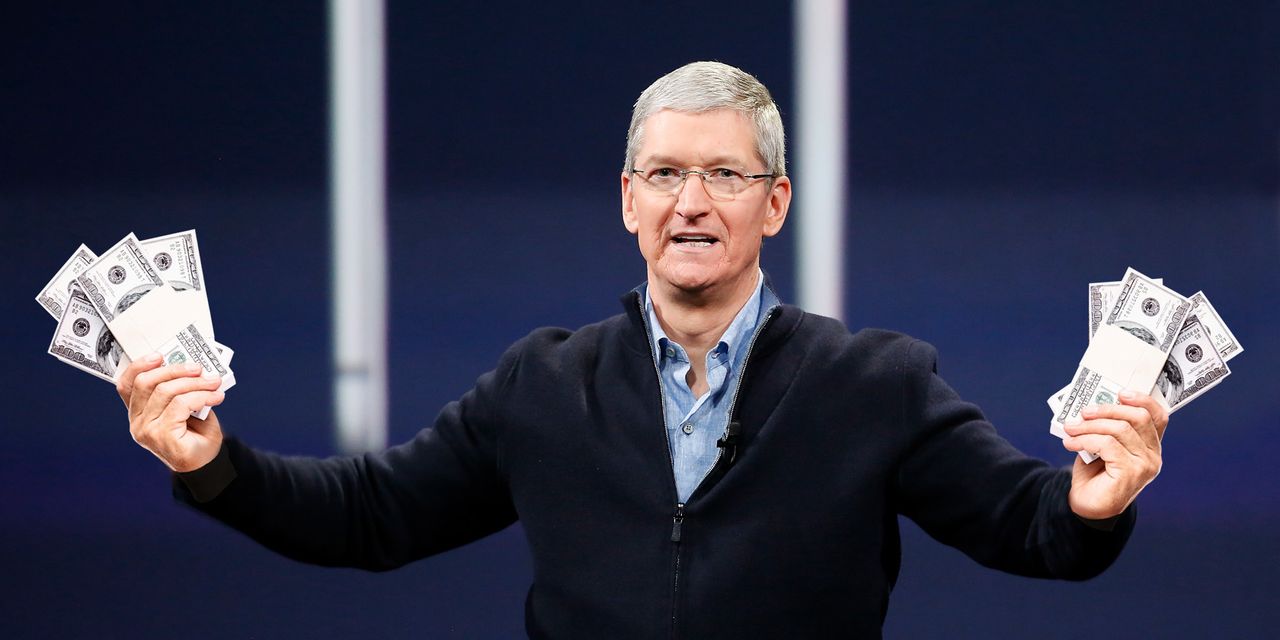It’s time for Apple Inc.’s annual cash bonanza.
The smartphone giant traditionally updates its dividend and buyback policies in conjunction with its March-quarter earnings report, and analysts are expecting another big payday for investors when Apple
AAPL,
posts results Thursday afternoon.
Apple added $90 billion to its buyback program in 2022 while upping its quarterly dividend by 5%, and Morgan Stanley’s Erik Woodring anticipates that the company will make the same move this year as it works toward its goal of becoming net-cash neutral over time.
While Apple’s balance of $165 billion in cash and marketable securities is constantly pointed to as a sign of the company’s power, the straight cash position does not take into account the company’s debt, much of it incurred when it was paying shareholders dividends and buying back shares by borrowing instead of bringing cash back to the U.S. from overseas. Apple still had $111 billion in debt on its books as of the end of December, which gives it $54 billion in net cash.
By Woodring’s math, if Apple continues with its recent cadence of shareholder returns and reinvestment, it can achieve its net-cash-neutral target in roughly 3.5 years.
BofA Securities analyst Wamsi Mohan also expects that the company will boost its dividend by 5%, to 24 cents a share, though he expects a slightly smaller increase of $80 billion to the buyback authorization. But he questions whether Apple is going far enough with its efforts to unload its net-cash position.
Don’t miss: Apple and 10 other stocks tied to China supply chains are at risk, but 7 others may benefit, says Morgan Stanley
Apple once hoarded cash in even greater amounts, but back in 2018, Chief Financial Officer Luca Maestri said the company would start drawing down its net-cash balance, which at the time stood at upwards of $160 million. While Wall Street likes to speculate about the potential for flashy deals — would Apple buy Netflix Inc.
NFLX,
or even Sonos Inc.
SONO,
? — Maestri has indicated that the company overwhelmingly plans to prioritize shareholder returns.
BofA’s Mohan, however, doubts whether the net-cash-neutral goal is optimal.
“If services are a larger part of the mix, and Apple has better visibility and more stable revenues, earnings and cash flow, then Apple could afford to go into a net-debt position to do things like more significant [mergers and acquisitions],” he wrote. “We believe its strong free-cash flow would allow Apple to de-lever quickly, if needed.”
Regardless, one benefit of the commitment to shareholder returns is that it helps Apple’s stock stand out, according to Samik Chatterjee of JPMorgan. Boosts to the dividend and buyback programs “will reinforce investor sentiment relative to shares of Apple representing a relative safe haven in the current macro backdrop with a robust balance sheet and flexibility to buy back shares,” he wrote.
Read the full article here




